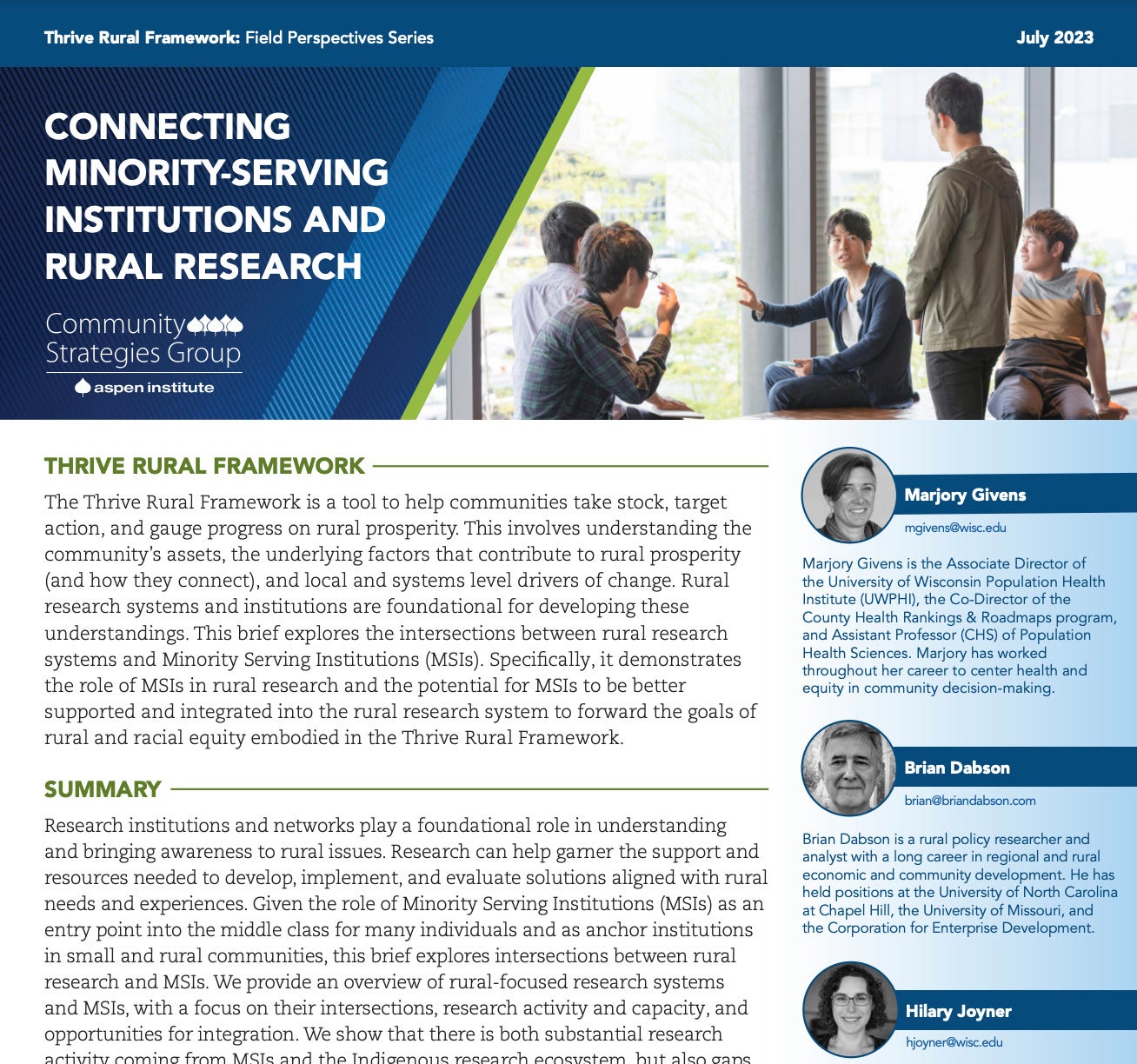Consider yourself lucky in life if you are invited down a rabbit-hole of fresh, dare I say, impossible ideas—at least for a couple of days now and again. Even better if you travel with peers who share your passion for a radically different way of approaching a problem. What initially seemed important, but nearly impossible, can begin to take form.
Take this impossible idea: what if business educators could break down the walls between departments and disciplines, and teach in the classroom the same way gifted managers solve sticky problems—applying subject matter knowledge but also experience, along with the application of critical thinking skills and the multiple perspectives gained through a great liberal arts education. What gets clearer when we blend the management sciences with the humanities? How does knowledge of history help us understand current events? What timeless management lessons are revealed through exploring great literature—or film?—or even the performing arts?
The lucky Deans, faculty, and administrators from thirty-eight colleges and universities who attended this year’s meeting of the Aspen Institute’s Undergraduate Business Consortium were invited to prototype seemingly impossible—or at least radically different—approaches to educating the 25% or more of our undergrads who seek business degrees and credentials.
Our host at Copenhagen Business School, Rasmus Johnsen, leads the Business of Teaching Program there. He posed an urgent question to make the rabbit-hole of fresh thinking seem inevitable: What’s the role of the teacher when subject matter knowledge is easily attained from the device in the student’s pocket? One of the posters in the sleek and inviting space where we met called it: “Knowledge you can’t Google.”
The Aspen Undergrad Consortium showcases creative teaching and learning environments that invite students to move past the conventional Gen Ed requirements of yore (“Choose one from Column A, one from Column B”), to co-create their educational experience. An inventory of ideas from 26 liberal arts colleges and universities, Charting a New Course for Next-Generation Business Leaders, features best-in-class teaching modalities and a framework for change tested at institutions as diverse as Boston University, Texas Christian University, Santa Clara in the Silicon Valley, Augsburg College in Minneapolis, Utah State, Cornell and Wharton. This toolkit is drawn from a decade of convening creative and dedicated teachers, scholars and administrators who step outside of the comfort zone of academic departments to advance new ways of organizing and delivering education at the undergraduate level.
Sarah Queen, a Chinese history scholar from Connecticut College is doing exactly that in a Freshman seminar on Global Capitalism. A semester of study begins with the history of our economic system and its critiques. It moves on to case studies of tensions in the work place and public square that call for business to play a useful role, from #BlackLivesMatter to #FoodFirst.
By the end of the semester, students are challenged to hone an “animating question” that is pertinent to an issue they care about— from the conduct of politics to sustainability of the food system. This question guides the choices ahead of them. Their major course of study, selection of electives, and opportunities for internships and study abroad all become part of the journey of inquiry. And the faculty member? He or she continues on as teacher, tutor, mentor, and guide to the riches of the university —to help the students take full advantage of their educational experience.
On the first day, Rasmus challenged us each to make our own list of impossible ideas to explore. Professor Queen helped me reconsider the question that animates my work at the Aspen Institute: How do we resolve the values taught in the finance classroom with the values of the humanities, and the need to put the health of society back at the center of business decision-making?
Jeff Nesteruk, a professor of Legal Studies at Franklin & Marshall College in Pennsylvania tackles this question in his classroom. Jeff has engaged in the Aspen network since its first meeting in 2012 at George Washington University and his course is featured in our toolkit for blending business and the liberal arts. He puts it this way in a blog post, What’s Discovered When Disciplines Learn from Each Other:
Professor Nesteruk brings a political theorist to his classroom on business law and organizations to help students mine the limits of our conventional narrative about economics and markets. His colleague poses timely questions, like, “How does viewing individuals as rational, self-interested (profit-seeking) agents fit with political notions of citizenship and collective meaning? How does the life of production and trade fit into the political community’s understandings of a good and just life?”
This kind of blended inquiry also works for today’s students —who seek real world relevance and business credentials for the resume, but as Nesteruk says, are also asking “how to bring their personal values to their professional work.”
On the final afternoon, our colleagues from Copenhagen Business School invited the participants to try something that almost never happens in the classroom: to use nature, and silence, to meditate on our experience together. In paired silent walks in a park close by, we enjoyed a brilliant summer afternoon, and then tried out a “Benedictine round” —a methodology for deep listening to one another, and reflection.
Not a bad way to transition from the rabbit-hole of impossible ideas, to the work we must do to bring them to life.
Find out more about the work of the Aspen Undergraduate Business Consortium and our work in business schools here.

